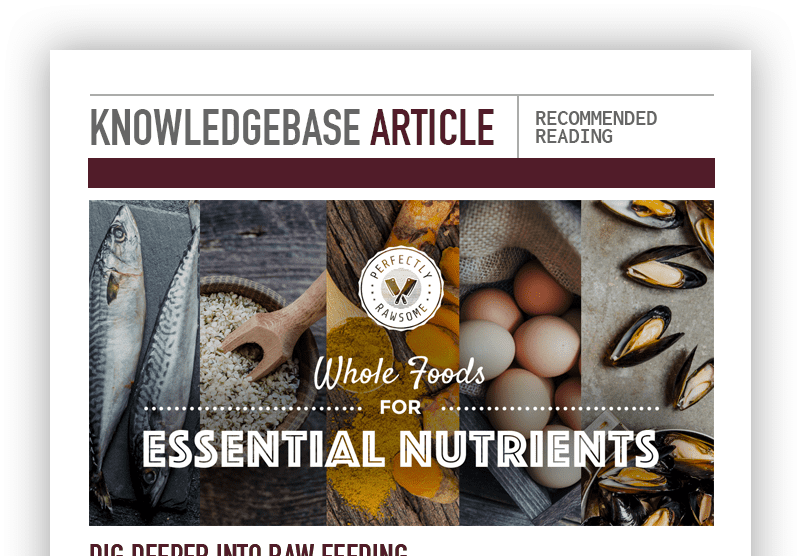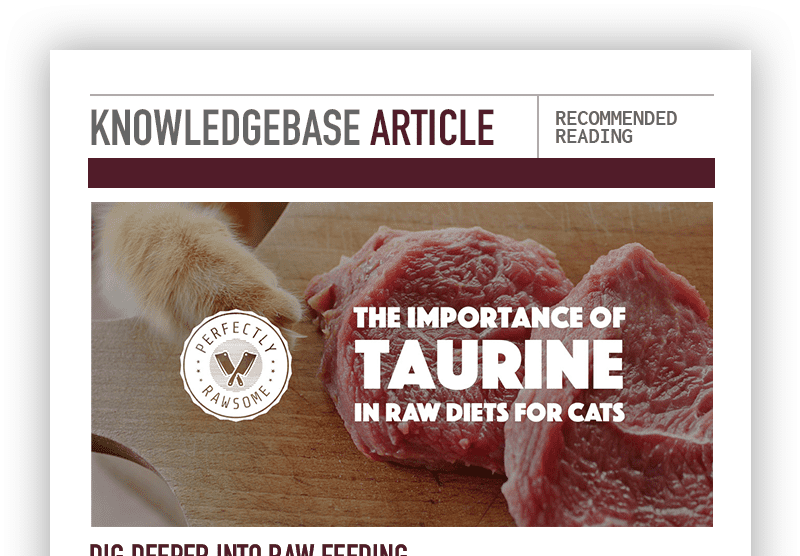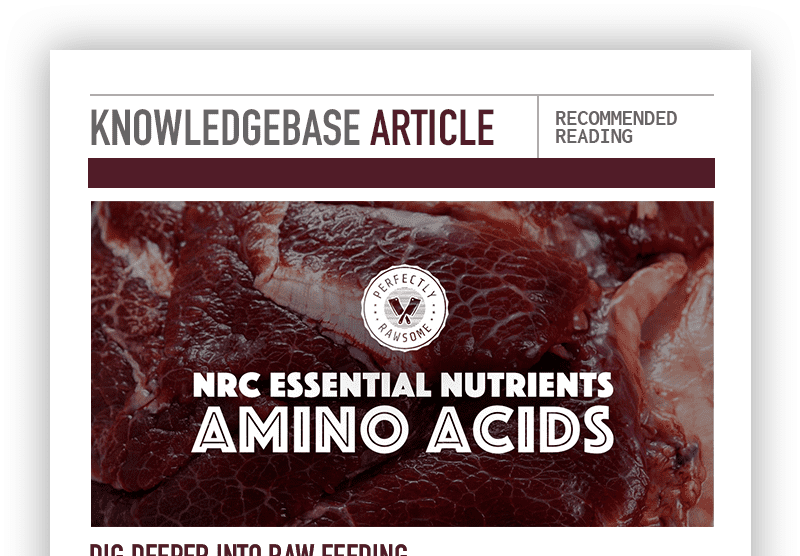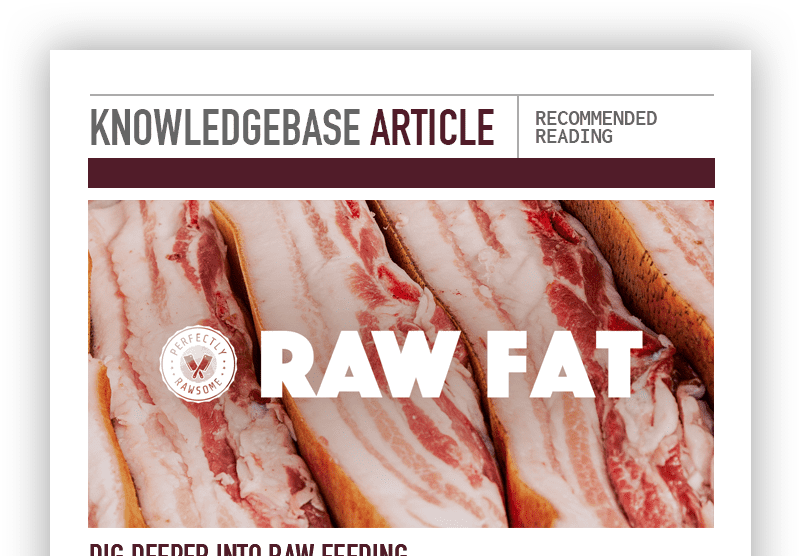Nutritionally induced Dilated Cardiomyopathy (DCM) has been a concern for dog owners and veterinarians in recent years. While heart disease can affect cats, DCM from nutritional origins has primarily been a subject of concern in dogs. Unfortunately, there is not a full understanding of the medical condition and research is ongoing to pinpoint the cause of the rise of DCM in dogs.
Dog owners are often concerned with what to feed their dog due to the concerns of DCM. There are many factors to consider when selecting an appropriate diet. Fresh food diets are often villainized because many do not include grains. However, recent studies provide data to guide dog guardians in making the best choice when feeding their dog.
The following topics are important in the discussion of DCM:
Genetic vs Non-hereditary DCM
The origins of DCM can vary from genetic predisposition to other non-hereditary factors.
Original FDA Claims
The FDA’s original report was unsubstantiated. It created undue concern and confusion among pet parents and veterinarians alike.
Potential Nutritional Components
Despite the unproven nature of the original DCM reports, there are multiple nutrients that play a role in heart health. These nutrients may need particular attention or supplementation for dogs who are genetically or medically predisposed to DCM.
Diet Recommendations for Heart Support
There are multiple diet modifications that are recommended for dogs who are diagnosed with DCM or other heart conditions.
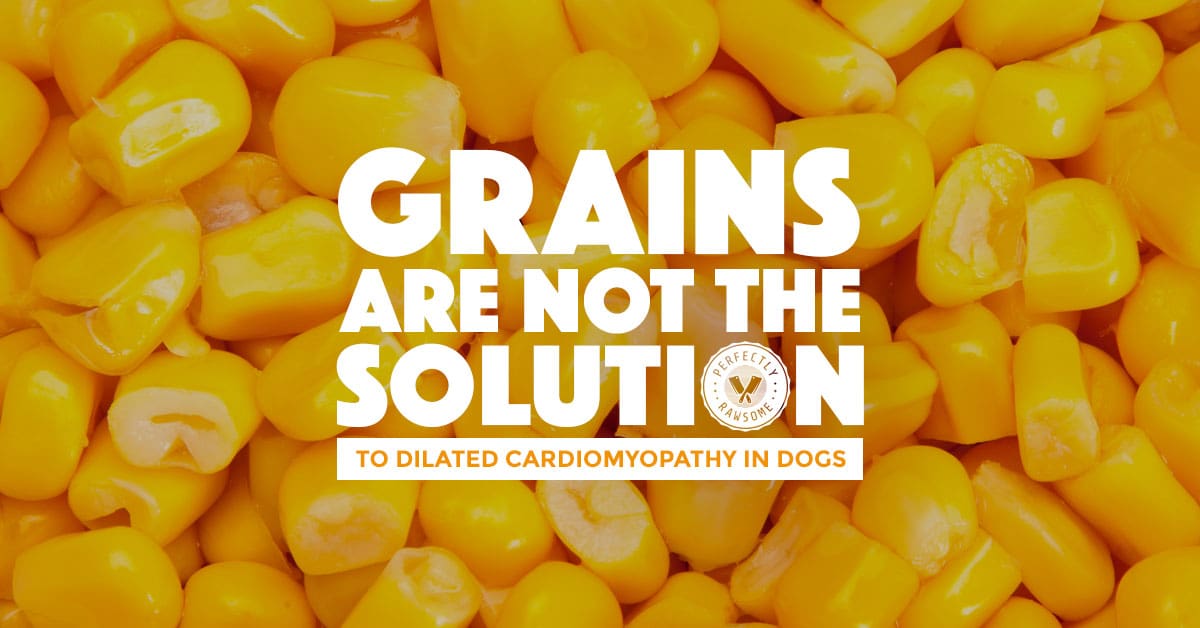
Genetic vs. Non-Hereditary DCM
DCM in dogs is a medical condition where the heart becomes enlarged. It becomes more difficult for the heart to pump as it enlarges, and this can lead to congestive heart failure. The vast majority of DCM cases are hereditary and there are certain breeds which are known to be at high risk. However, hereditary DCM can be exacerbated by other factors, and a small percentage of cases may be attributed to non-hereditary factors entirely. The main causes of DCM include:
Genetics (hereditary)
The most common cause of DCM remains genetics. Doberman Pinschers are well known to have an incredibly high rate of genetic DCM and heart conditions within the breed. However, there are many other breeds prone to inherited DCM and other heart conditions.
Breeds that are most prone to DCM or other known heart conditions: Golden Retrievers, Cavalier King Charles, Great Danes, Boxers, Labrador Retrievers, Cocker Spaniels, German Shepherds, Schnauzers, German Shorthair Pointers, Irish Wolfhounds and Mixed breed dogs.
Dystrophin (DMD), Striatin (STRN), Pyruvate Dehydrogenase Kinase 4 (PDK4) and a Locus on Chromosome 5 are some of the genes thought to be associated with inherited DCM in German Shorthair Pointers, Boxers and Dobermans respectively. Additionally, mixed breed dogs can inherit DCM as well if it has been passed down through their individual genetics.
Myocarditis
Myocarditis is an inflammatory condition of the heart that is typically viral or bacterial in origin. DCM and congestive heart failure are common resultant complications of myocarditis. It is suspected that myocarditis is an unrepresented cause of DCM in dogs due to the current testing limitations.
Hypothyroid Disease
Hypothyroidism can also lead to secondary DCM. Certain key proteins involved in heart health are regulated by the thyroid hormones. Poor hormone regulation due to hypothyroidism can result in decreased systolic function, low QRS voltages, weak apex beat, and sinus bradycardia. Improved cardiac function has been observed in hypothyroid dogs when their thyroid condition was treated.
Tachycardia
Tachycardia is an abnormally fast heart rate. This condition can adversely affect heart health since left ventricular systolic function is directly affected by heart rate. It has been reported that the effects of Tachycardia on heart function are typically reversible once the condition is treated.
Malnutrition
Malnutrition and severe deficiencies can cause a myriad of health problems. However, it is unlikely that balanced grain-free pet foods will cause nutritionally induced DCM based on the updated literature. It has been observed that certain instances of DCM show improvements with a diet change or taurine supplementation. However, in addition to other confounding variables, a portion of these cases were also started on heart medications at the same time. Therefore, it is unclear whether the improvements in these cases came from dietary changes, medications, or both. This is a problem because confounding variables and the lack of controlling for independent variables can produce biased results and suggest a correlation that doesn’t exist.
A balanced homemade raw or cooked diet is not difficult to create with the correct ingredients. However, there are several common pitfalls in fresh feeding that can create unbalanced diets. Many pet parents incorrectly believe that ratio diets (PMR or BARF) are nutritionally complete. Additionally, when home-cooking it is common for pet parents to feed a combination of cooked meat, rice or other carbs, and vegetables. However, this type of diet is severely deficient in multiple essential nutrients.
Whole Foods That Provide Essential Nutrients for Dogs & Puppies
Original FDA Claims
Many veterinarians and researchers began recommending that pet owners avoid grain-free, boutique, or novel protein pet foods despite no definitive evidence to support this switch.
FDA Research Review
The wording of this request by the FDA created a significant sampling bias. In studies or surveys, a biased sample occurs when the sample data is not random and therefore does not properly represent the larger population. The wording of the FDA’s report meant that potential non-hereditary DCM cases on grain-free or novel protein diets were more likely to be reported than any potential non-hereditary DCM cases on a grain-inclusive diet. This could have been prevented by requesting all reports of DCM within a certain time period regardless of the suspected cause, and without mentioning why the reports were being collected.
There are several instances of conflicting information within the FDA data. While small boutique pet food brands were originally implicated in the first report, a breakdown of the data show that a large portion are from the 6 largest pet food manufacturers in North America. Additionally, the top seven proteins reported are chicken, lamb, salmon, whitefish, kangaroo, turkey, and beef which are not exotic proteins, except for kangaroo, as originally implicated. Currently, the FDA has received reports for both grain-free and grain-inclusive pet foods.
In reviewing a set of data reports from the FDA for cases of DCM on a raw diet, very little is revealed. At first glance, several reports include “Instinct ‘the raw brand’”. However, this can be misleading as the actual product being fed is the dry food line. In several reports including premade raw brands, dry food was also being fed or the dog’s breed was well known for genetic heart conditions. There was one report including homemade raw food which was a schnauzer that also tested as a carrier for DCM. There were two dogs on the list that were switched to raw food after the diagnosis of DCM. One dog showed immediate improvement while the other did not provide an update.
In addition to the FDA data, much of the recent research on nutritional DCM in dogs also contains sampling biases, confounding variables, inconsistencies in sampling parameters, known genetic predisposition in certain breeds, and lack of complete data for case studies. An in depth research review was published here in the Journal of Animal Sciences.
Potential Nutritional Considerations
There are multiple nutrients that play a role in cardiac function and heart health. While a nutritional cause for non-hereditary cases of DCM currently remains unproven, there are certain nutrients of note in relation to the subject of heart health and DCM.
Taurine
Taurine is an amino acid that is important for cardiovascular health as well as other purposes. Dogs synthesize taurine in the liver from the precursors methionine and cysteine. Therefore, taurine is not currently considered a dietary essential nutrient for dogs like it is for cats. However there are medical conditions and genetic co-factors that can increase a dog’s need for taurine.
Taurine is degraded by heat and oxidation. Therefore, the high heat processing of commercial pet food will reduce taurine concentrations.
Methionine & Cysteine
Methionine and cysteine are amino acids that are a dietary requirement for dogs in order for them to biosynthesize taurine. If these nutrients are low in the diet, this may affect a dog’s ability to produce enough taurine. Additionally, there is some evidence to suggest that larger breeds of dogs may have a lower biosynthesis rate of taurine than smaller dogs. Therefore, some breeds may have a higher dietary requirement than normal for methionine, cysteine and/or taurine.
Low Protein Diets
Protein is an overall term for amino acids. Dogs and cats require multiple individual amino acids for optimal health. Commercial pet foods that are low in overall protein (such as those for certain medical conditions) will have lower overall levels of amino acids.
Even commercial pet foods that are moderate-high in protein may not provide sufficient amounts of all essential amino acids. Many dry or canned pet foods utilize a high amount of plant ingredients to boost the overall protein. While these plant ingredients can be high in protein, they are considered an incomplete protein. This means they provide certain essential amino acids but not all of them.
Exotic Protein: Kangaroo
Based on the nutritional data available, kangaroo meat is low in the amino acids methionine, cysteine, and threonine. The amount of amino acids is dependent on the subspecies of kangaroo. However, a kangaroo based diet combined with other factors such as genetics, nutrient inhibitors, and excess fiber can present nutritional deficiencies if not properly addressed.
Combining kangaroo with other protein sources will increase the essential amino acids in home prepared diets. Heart muscle meat from a common protein (such as beef, pork, or lamb) is recommended as the additional ingredient to pair with kangaroo. This is because the heart provides more methionine, cystine, and threonine per gram in comparison to other options.
High Fat Diets
Fat is an essential nutrient for dogs and cats, and a diet deficient in fat will have its own detriments. However, raw diets that are excessively high in fat can cause amino acid deficiencies. Fat provides 9 calories per gram whereas protein provides 4 calories per gram. Therefore, diets with fat that exceeds protein are often amino acid deficient unless amino acid supplementation is added. This is a potential problem in premade grinds that utilize fatty scraps to reduce cost. It may also occur in homemade diets when high fat ingredients are overused.
Excessive Fiber
Dietary fiber in moderation has multiple benefits. However, excessively high levels of fiber can decrease protein digestibility in the hindgut and have anti-nutritive effects. Since amino acids are proteins, excessive fiber can potentially hinder absorption of the amino acids crucial for heart health as well as other essential nutrients.
Most commercial dry and canned pet foods are extremely high in fiber due to the high amounts of plant ingredients used, and this issue is not limited to grain-free foods. Grain-inclusive foods typically include just as much fiber as grain-free dry or canned pet foods.
Nutrient Inhibitors
However, nutrient inhibitors could be a potential problem in dry and canned pet foods. This is because these products use very high amounts of plant matter, mainly grains, legumes or similar starches. Additionally, it is not feasible for commercial pet foods to take the steps to reduce nutrient inhibitors such as soaking any grains or legumes prior to manufacturing.
Additional Nutrients
There are several essential nutrients that play a role in heart health, and deficiencies of said nutrients have been associated with myocardial damage. However, it has not yet been determined if these nutrient deficiencies contribute to the development of DCM.
Carnitine
L-carnitine plays an important role in the process of producing cellular energy in the mitochondria of the heart muscle.
Thiamin
Most research showing adverse effects on heart health from thiamin deficiency has been conducted in other species. Any connection to DCM in dogs requires additional research.
Copper
Copper deficiency from balanced commercial pet foods is rare as it is routinely supplemented. However, certain ratio premades and homemade diets that do not include ruminant liver or a supplement can be deficient in copper.
Vitamin E
Vitamin E has antioxidant benefits and works with the enzyme glutathione peroxidase, which is important for cysteine synthesis. Significantly lower levels of these two compounds have been seen in dogs with DCM compared to healthy dogs.
Selenium
Selenium is a component of the enzyme glutathione peroxidase mentioned above. Additionally, the synthesis of taurine can be negatively affected by poor selenium bioavailability.
Choline
Since choline is a methyl donor, it is important for the regeneration of methionine from homocysteine.
Potassium
It has been observed that taurine depletion in cats can occur due to decreased potassium intake.
Diet Recommendations for Heart Health
Regardless of the underlying cause, pets diagnosed with DCM or other heart conditions should consume a balanced diet with specific modifications to decrease inflammation and hypertension associated with the disease. It is recommended to work with a certified nutritionist when implementing a therapeutic diet.
High Protein
A diet high in quality animal protein will provide sufficient amino acids for heart health. A balanced home cooked or raw diet is ideal.
High EPA/DHA
Therapeutic levels of the Omega 3 fatty acids EPA and DHA provide anti-inflammatory benefits.
Low Sodium
Reducing dietary sodium is recommended in cardiac diets. This excludes the ability to feed seafood in its raw or canned form. However, steamed fish is an alternative option if feeding seafood is desired. Steaming reduces sodium which provides an alternative for home prepared diets that include fish.
Additionally, All Life Stage formulations in commercial pet foods will have higher levels of sodium in order to meet puppy requirements. Therefore, adult dogs with heart conditions should be fed food that is specifically formulated for adult requirements without added salt.
Supplemental Support
It can be beneficial to provide additional supplementation of taurine, CoQ10 and l-carnitine to pets with heart conditions in addition to a balanced low-sodium diet.
Herbal Support
Hawthorn Berry is well known for its cardiac benefits and can provide herbal support to dogs with heart conditions. However, it is essential to consult a veterinarian before implementing herbal supplements as hawthorn can interact with certain heart medications.
CLOSING COMMENTS
There remains no definitive link between non-hereditary DCM and certain brands or types of diets such as “grain-free” or exotic proteins. However, this doesn’t mean that nutrition cannot play a role in the development of heart disease and other medical conditions. The combination of a reliance on plant proteins, nutrient inhibitors, excessive fiber and high heat processing indicate that processed pet food as a whole may be a recipe for low levels of amino acids and other essential nutrients. This is especially concerning for dogs with genetic or underlying factors that predispose them to DCM or other heart conditions.
Genetic vs Non-hereditary DCM
The overwhelming majority of DCM is genetic or a secondary condition to other diseases such as Myocarditis, Hypothyroidism, and Tachycardia.
Original FDA Claims
The FDA’s original report was unsubstantiated. An exhaustive review of the current science shows many inconsistencies.
Potential Nutritional Components
There are multiple nutrients that play a role in heart health such as taurine, methionine, cystine, fiber, and nutrient inhibitors.
Diet Recommendations for Heart Support
Specific dietary modifications should be made when a pet is diagnosed with a heart condition which includes high quality protein, low sodium, and targeted supplemental support.
A fresh food diet is the best way to provide quality amino acids for heart health from bioavailable animal sources. However, it is important for pet parents to be mindful of the nutritional components to optimal health and avoid imbalanced diets.

